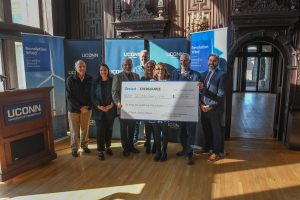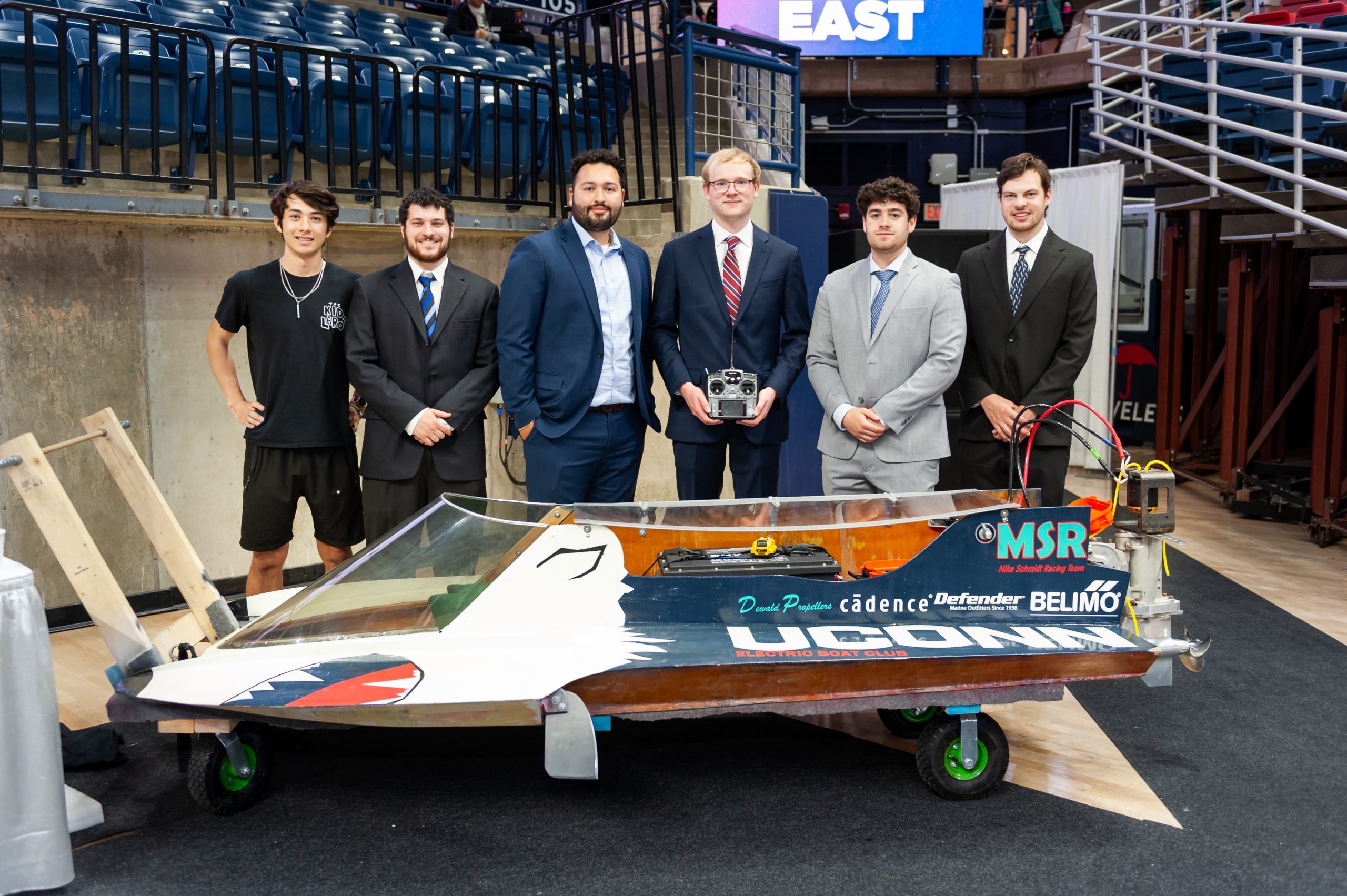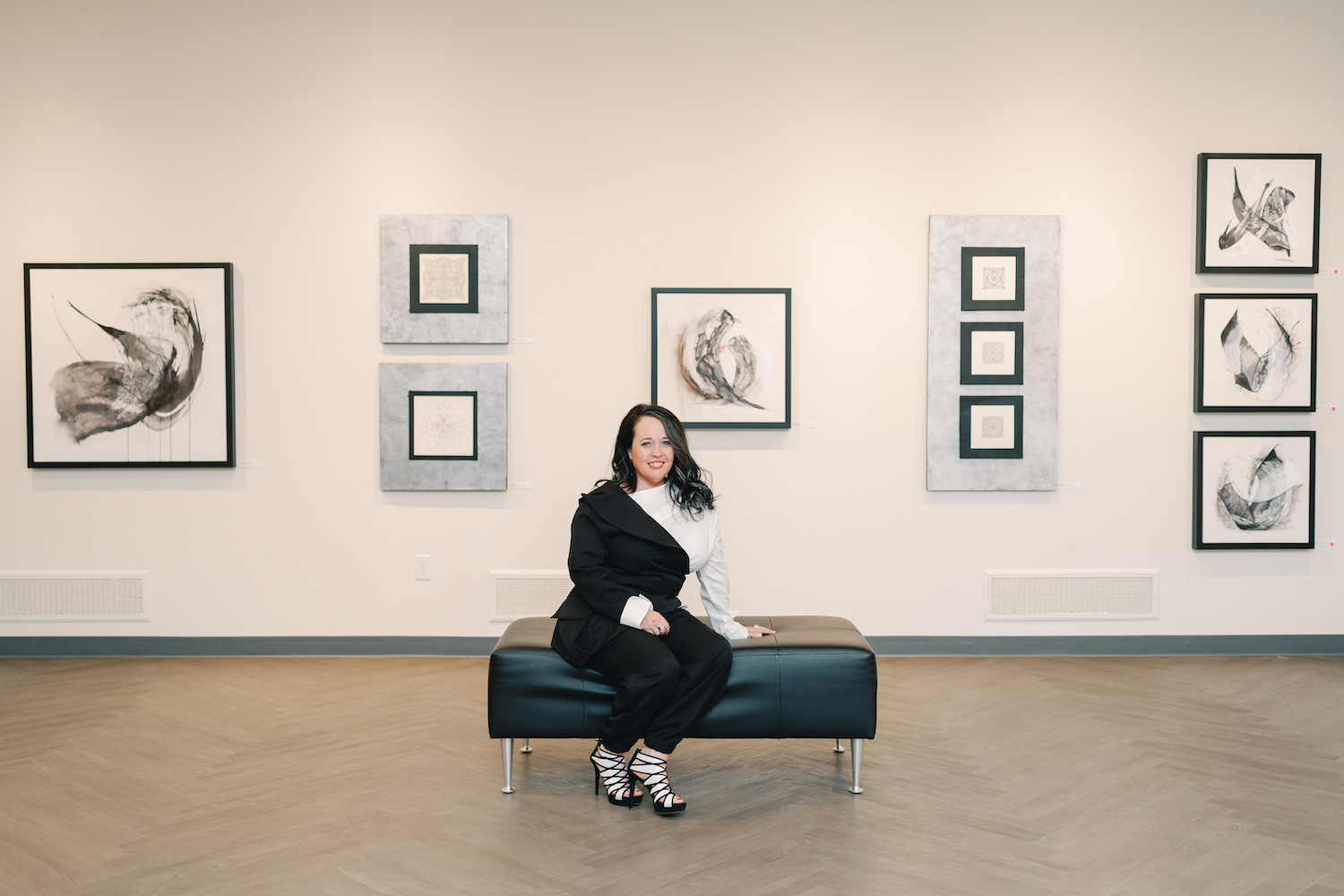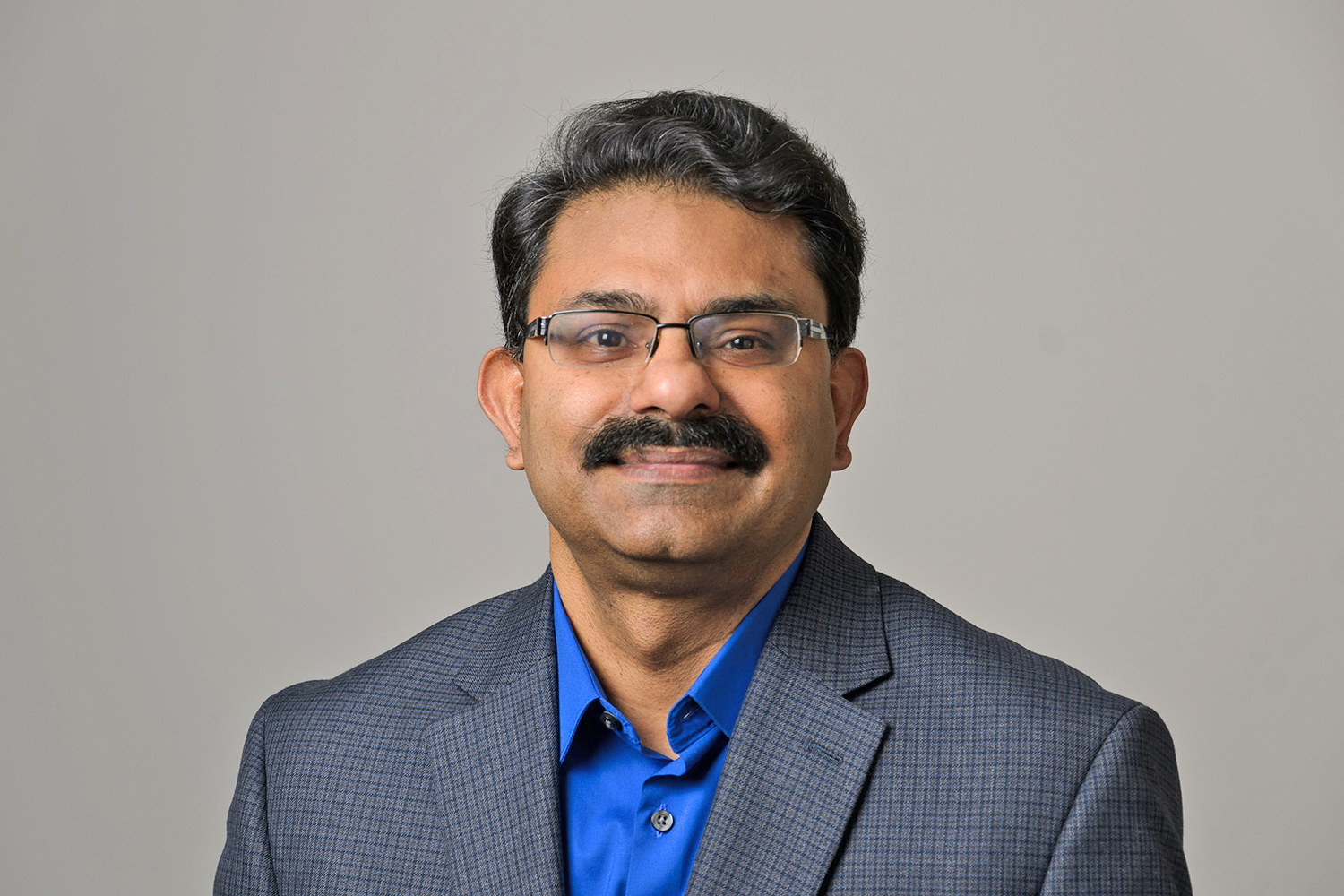In 2023, UConn made significant research contributions honoring the University’s commitment to a greener, cleaner, and more sustainable world. From the Storrs campus and across the state, researchers dedicated themselves to finding solutions to some of the most critical challenges posed by climate change. Those efforts continued a legacy that stretches back more than a century.
But UConn’s research successes and breakthroughs extended into other disciplines as well. Faculty and students made advancements in healthcare, engineering, and technology. Researchers examined societal issues, developed new methods of teaching students of all abilities, and delved deep into the humanities. Behind the scenes, the Office of the Vice President for Research (OVPR) was there to promote growth and provide the expertise to help advance ideas from concept to commercialization.
Here’s a look at the stories that defined research in 2023 and forwarded a legacy of excellence that has made UConn the leading R1 public research university in New England.
Transforming Connecticut’s Workforce, Economy, and Energy Corridor
UConn and Yale are co-leading an ambitious and extensive effort to transform Connecticut into the nation’s leading accelerator for quantum technology. With partners including the Governor, major cities, and the industrial leaders, QuantumCT aims to advance the state by establishing a network applying cutting-edge techniques across numerous sectors and disciplines. UConn and Yale are setting the groundwork for significant National Science Foundation funding to make QuantumCT successful.

Sustainability efforts include researching the impact of wind farms on Long Island Sound, partnering with Eversource and Orsted. At the campus level, the OVPR is collaborating with the Provost’s Office on initiatives designed to stir and expand opportunities for students in environmental sustainability. Faculty members have worked collaboratively across disciplines to research electrochemical carbon dioxide reduction.
Meanwhile, UConn reached an agreement with the Connecticut Center for Advanced Technology to synergize research and development efforts in the tech space. Additionally, the University addressed two growing areas of research – artificial intelligence and cannabis science – through the Humanities Institute and an interdisciplinary symposium on the medical, economic, and innovative topic of legalized marijuana.
Institutional Recognition
In 2023, the Wall Street Journal lauded UConn as a top value institution, based on criteria such as affordability, length of time it takes to graduate, and return on investment. The newspaper ranked UConn ninth nationally among public universities and 46th overall.
In research, UConn also received national recognition and improved among key indicators for success. The University’s HERD ranking jumped significantly in 2023, demonstrating improvement in research funding and output. The data, which is collected by the National Science Foundation, ranks schools according to research expenditures, with UConn climbing nine spots from the previous year. The Association of Public Land-grant Universities recognized UConn’s profound impact on the state by designating it as an Innovation and Economic Prosperity University.
OVPR Initiatives
Researcher success is at the heart of the OVPR’s mission. Many seed programs help faculty, students, and entrepreneurs seek significant funding from other sources.
In 2023, the OVPR awarded a collective $729,000 to researchers at UConn and UConn Health. The Clinical Research and Innovation Seed Program (CRISP) awarded 17 projects, ranging in size from $5,000 to $100,000.
The OVPR also announced the first ever cohort of researchers to earn seed funding for projects designed to address societal issues such as equity and inclusion. The Justice, Equity, Diversity, and Inclusion (JEDI) program awarded $180,000 in funds to five different projects, advancing research on topics ranging from school safety to abuse of transgender and nonbinary individuals.
Advancing Sports Medicine

While the glory goes to the athletes and coaches who bring championships to Storrs, UConn scientists and researchers work tirelessly to help the Huskies reach the top of their game. Just ask superstar guard Paige Bueckers. Working with experts like Mike DiStefano and biomechanics specialists, Bueckers worked her way back from a devastating ACL tear and is now once again one of the elite players in college basketball.
UConn researchers from the Korey Stringer Institute continue to help prevent severe injury and even death. Their work involves furthering the same type of knowledge about cardiac arrest that the Buffalo Bills medical staff applied to saving Damar Hamlin.
Health and Society
Societal factors play a key role in public health. Recognizing this, UConn researchers made important discoveries regarding the progression of diseases such as cancer and Alzheimer’s. Geography associate professor Debarchana Ghosh is building upon previous studies exploring how social inequality impacts cancer outcomes. At UConn Health, researchers are studying new symptoms of Alzheimer’s, learning that brain plaques might not be a cause, but rather a result of the disease.
UConn faculty are also leading efforts to combat other dangers to health, including gun violence. UConn ARMS Center researchers edited a major journal on the complexity of firearm violence and safety. Kinesiology assistant professor Jacob Earp developed equations and measurements of obesity that may be a better indicator of risks than body mass index. Human Development and Family Sciences Professor Caitlin Lombardi discovered a link between health insurance and children’s reading ability, finding that children whose parents gained public health insurance coverage improved their literacy scores.
Tech Transfer/Licensing
The past year was also significant for UConn’s Technology Commercialization Services (TCS). The talented faculty and staff shepherded several successful licensing agreements, developments, and scientific breakthroughs. Among them, TCS worked with the Connecticut Agricultural Experiment Station to make greenhouse gas emissions safe to release.

Entrepreneurs found alternatives to plastics, helped patent technology that predicts when underwater divers are at risk for seizures, and expanded audiences for programs such as the Feel Your Best Self series.
Health patents and agreements included a drug that reduces deadly inflammation during heart surgery and a system that eliminates human error from breast cancer detection. One UConn startup, Encapsulate, provided an insider’s view into entrepreneurship and precision cancer treatment. Other scientists invented a polymer that stabilizes CBD products and could serve as a medicine delivery system.
Under the Radar
While clean energy research and health breakthroughs dominated UConn headlines, several faculty experts made other significant contributions. Microbiology assistant professor Kathryn Milligan-McClellan earned a Chan Zuckerberg Initiative Science Diversity Leadership Award for her work with Native Alaskan populations north of the Arctic Circle. Scientists looked deep into the cosmos to investigate super black hole activity. Animal science researchers investigated treatments for porcine diseases that ravage the pork industry, potentially saving farmers billions of dollars.
Locally, student researchers learned the important roles that bees play in agriculture and food production. The UConn Trails Program studied the network of paths and trails throughout the state, enabling hikers to better explore Connecticut.
Researchers studied holistic approaches to healthcare, pondering the possibility of insurance coverage for mindfulness activities. And, in the spirit of Herman Melville, UConn expertise is being lent to an effort to better teach Moby Dick to new generations of readers.



